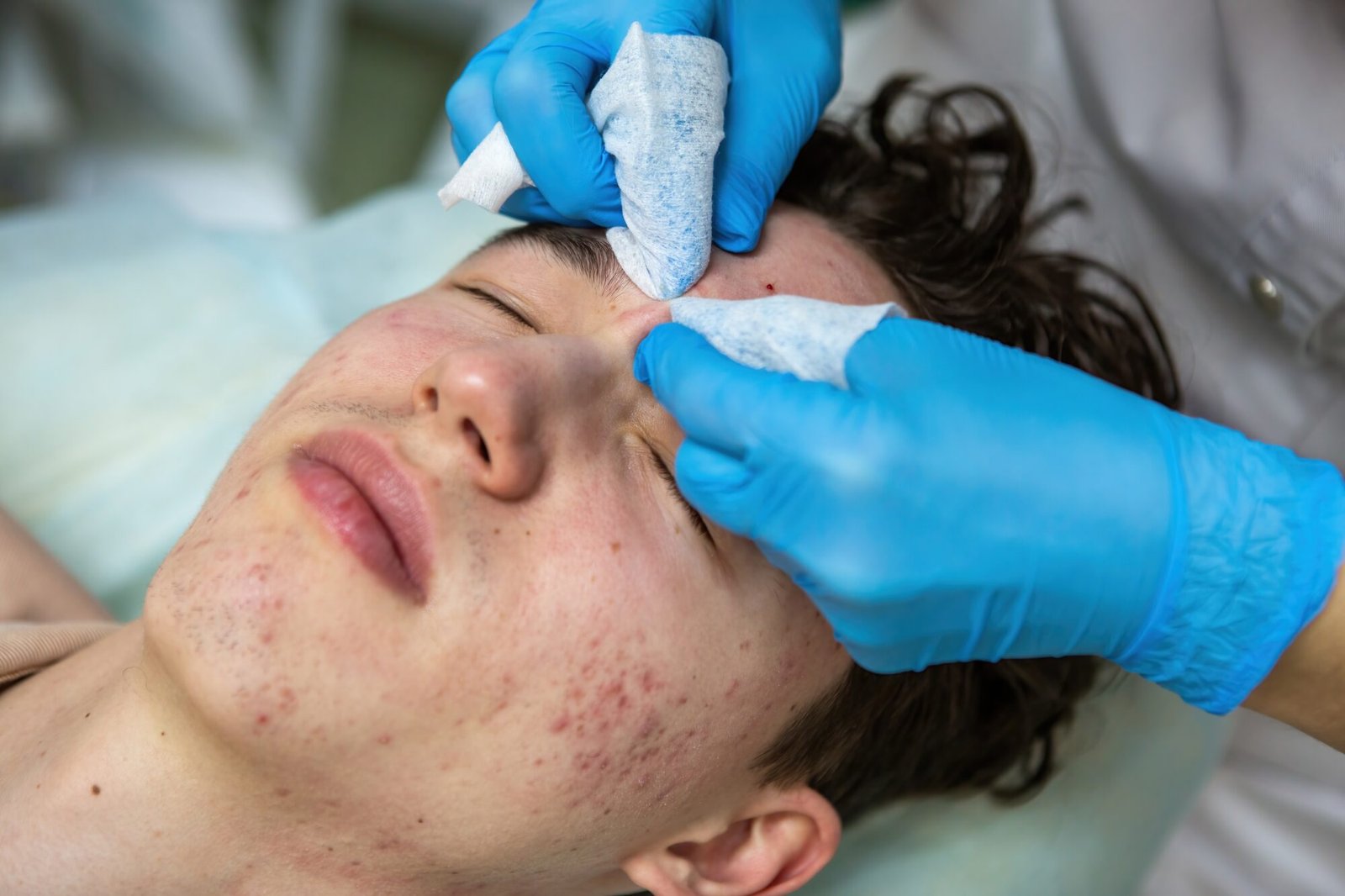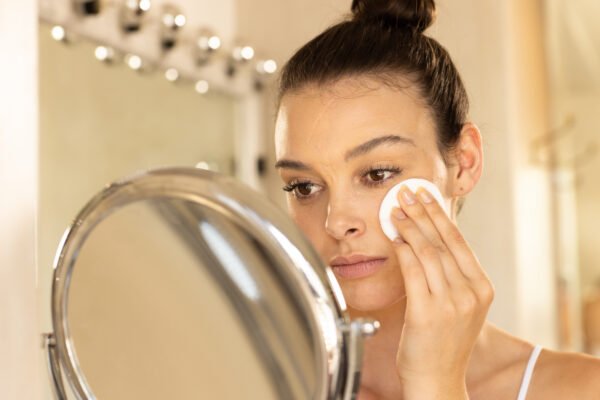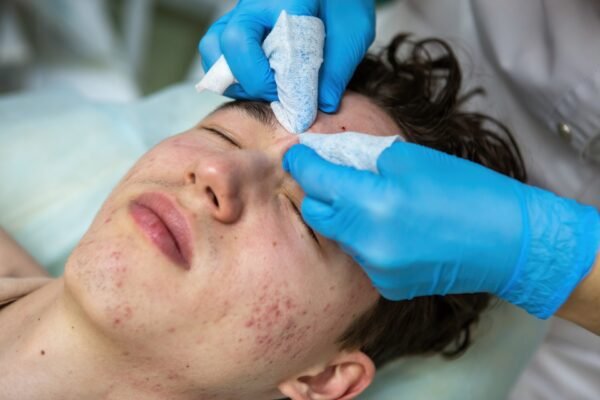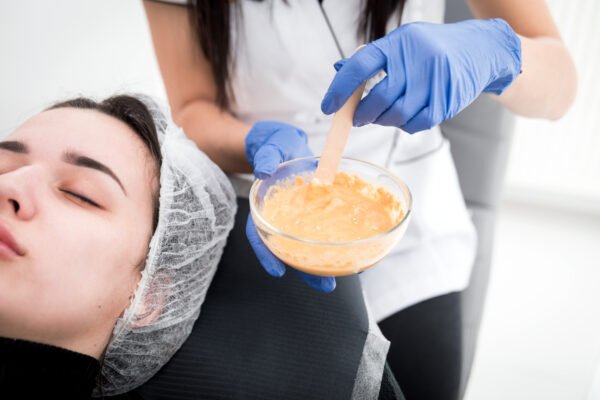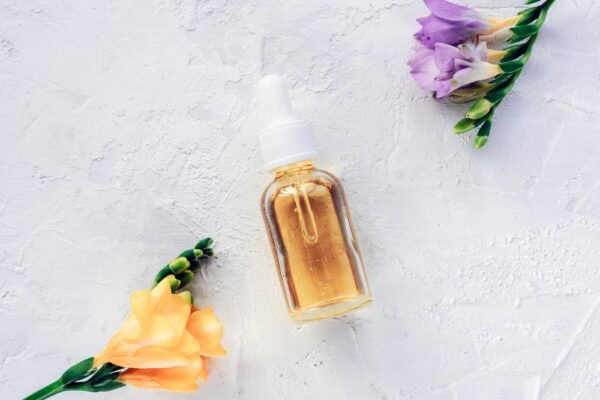Introduction
Skincare may be confusing, particularly for combination acne skin. This distinctive skin type has oily, dry, and acne-prone patches. Understanding and controlling this skin type is possible. Our guide to combination acne skin care covers practical suggestions and successful solutions. Whether you’re a skincare specialist, adolescent, or beauty blogger, this thorough guide will help you create a customized skincare regimen.
What is the Combination Acne Skin?
Acne skin is a common yet challenging combination. Oily forehead, nose, chin, and dry cheeks are typical. Balanced skincare is vital for acne. Understanding your skin’s needs can help you better care for and maintain it.
Combination acne is handled by recognizing each area’s needs. Dry regions require hydration and nutrients, while oily areas need sebum-reducing therapies. Gentle, effective acne treatments don’t irritate sensitive skin. With the correct method, your complexion may be balanced and clear.
Despite challenges, combination acne skin care is achievable. A consistent skincare practice and products that fit your skin’s dual nature help balance and cure acne. Understanding your skin type is the first step to healthier, brighter skin.
The Importance of a Balanced Skincare Routine
A combination of acne skin demands a thorough skincare routine. A consistent regimen nurtures your skin, and a combination of skin needs acne treatments tailored to its characteristics.
Wash your face twice daily with a gentle cleanser that removes impurities without diminishing skin oils. Gel and foam cleansers are great for oily and dry skin. Toners regulate pH and prepare skin for treatments. Toners without alcohol soothe and hydrate sensitive skin.
Each skincare regimen requires moisturization, especially for combination acne skin. Hydrate without clogging pores with lightweight, non-comedogenic moisturizers. Gel or water-based treatments work for oily skin, while creamier textures nourish dry skin. Adjusting your routine to your skin’s needs prevents acne and maintains equilibrium.
Choosing the Right Products for Combination Skin
Managing combination acne skin requires the appropriate skincare products. Choose the many alternatives that appeal to your skin’s dual nature. Consider multi-purpose products for oily, dry, and acne-prone skin.
Choose sulfate-free cleansers with mild ingredients like salicylic acid or tea tree oil. These ingredients reduce oil and breakouts without drying out the skin. Search for products containing hyaluronic acid or glycerin to moisturize dry facial regions.
Combination acne skin needs exfoliation. Choose chemical exfoliants such as alpha hydroxy acids.
The Role of Sunscreen in Your Routine
Any skincare program needs sunscreen, including combination acne skin. Preventing premature ageing, sunburn, and skin damage requires UV protection. Fortunately, several sunscreens are suitable for this skin type.
Choose a broad-spectrum SPF 30 or greater sunscreen for combination or acne-prone skin. Choose lightweight, oil-free, non-comedogenic products that won’t clog pores or worsen oily skin. Gel or fluid sunscreens protect without creating a greasy film.
Apply sunscreen after moisturizing and before makeup in the morning. Cover your whole face, including acne-prone areas, to preserve an even complexion. Use sunscreen regularly to protect your skin and enhance your skincare.
Developing a Nighttime Skincare Routine
Nighttime skin rejuvenation requires an effective routine. Treatments should nourish and mend combination acne skin while addressing specific concerns. Create a morning complexion that’s refreshed and balanced.
First, remove makeup, sunscreen, and daily pollutants by double cleansing. After removing makeup with oil, use a light foaming cleanser to purify. It cleans well without eliminating oils.
Use serums and treatments for skin. Niacinamide lowers oil production and irritation, while retinoids treat acne by activating cell turnover. Layer them with a moisturizer to retain the skin barrier and lock in benefits. Bedtime rituals nurture skin.
Tackling Acne with Targeted Treatments
Many people with mixed skin want to treat acne. Luckily, breakouts may be treated with specific medicines. Choose mild yet effective acne-fighting substances without irritation or dryness.
Salicylic acid penetrates pores to remove oil and prevent blocked pores, making it a popular acne treatment. Look for spot treatments, cleansers, or toners with this component for direct blemish therapy. Because it kills acne-causing germs, benzoyl peroxide is another good choice.
Add sulfur-based treatments to your regimen for sensitive skin. Sulfur absorbs oil and prevents breakouts without discomfort. Apply these treatments sparingly to acne-prone areas and modify them as needed. Consistent use may clean and improve skin.
The Benefits of Regular Hydration
Hydration is a crucial component of any skincare program, particularly for combination acne skin. Hydrating your skin keeps dry parts moist and oily areas balanced. Using moisturizing products may also improve skin texture and appearance.
Try moisturizing serums or essences with hyaluronic acid, glycerin, or aloe vera. These ingredients moisturize the skin without adding oil. Use these products after cleaning and toning before moisturizing.
Using a face spray enhances daily hydration. Use a calming spray like rose water or chamomile to rejuvenate and shine. Hydration strengthens your skin’s barrier and balances your complexion.
The Importance of Consistency and Patience
A healthy combination of acne skin takes persistence and patience. While trying new items often is appealing, adhering to a regimen works best. Give your skin time to acclimate and react so that you can better evaluate its requirements and handle any issues.
Your skincare routine should be consistent morning and night. Cleansing, toning, moisturizing, and sun screening should be everyday practices. Targeted therapies can quickly address particular issues like acne.
Introducing new items or treatments requires patience. Allow your skin to acclimate to changes for weeks and regularly monitor its reaction. Review and change your regimen if discomfort arises. Consistency and patience may lead to a balanced, bright complexion.
Exploring Natural Alternatives for Combination Skin
There are several natural skincare options for combination acne skin. Natural substances may solve problems without chemicals. Explore these options to customize your routine to your values.
Tea tree oil’s antimicrobial characteristics make it a popular acne treatment. It reduces inflammation and fights acne bacteria. To prevent irritation, dilute tea tree oil with a carrier oil before application. Other valuable ingredients include aloe vera, which soothes and hydrates sensitive skin.
Add clay masks to your regimen to absorb oil and cleanse the skin. Clays like bentonite and kaolin detoxify mixed skin without drying it out. Use these masks once or twice a week to maintain balance and clarity. Explore natural skincare options to improve your regimen while sticking to your preferences.
The Role of Diet and Lifestyle
Food and lifestyle help control combination acne skin, but skincare products aid. Being mindful of your daily actions may enhance your complexion.
Follow a balanced diet of fruits, vegetables, healthy grains, and lean meats. These foods include skin-healthy vitamins A, C, and E. Drink adequate water every day to hydrate and detoxify your skin.
Essential lifestyle factors include stress management and sleep. Meditation and yoga may alleviate acne-causing stress and hormone imbalances. Sleep seven to nine hours each night to repair and rejuvenate your skin. Healthy living improves skin and offers a gorgeous complexion.
Building a Supportive Skincare Community
Skincare may seem intimidating, but a helpful community can provide advice and support. Sharing expertise with other skincare aficionados, beauty bloggers, and specialists is possible. Participating in forums and receiving advice might boost your skincare confidence.
Join skincare forums and social media groups to meet people with similar issues. Sharing personal experiences and product suggestions builds community and introduces innovative combinations of acne skin care methods.
Attend local skincare seminars or events to learn from industry experts and network with like-minded people. Building a supportive community improves your knowledge of skincare and enables you to make healthy skin decisions.
Understanding Acne Triggers
To effectively care for combination acne skin, it’s important to know what can make breakouts worse. Some of the most common causes are changes in hormones, some medicines, food choices, and external factors like smog and weather. Keeping a detailed skincare log can help you find trends and spot specific triggers, which will let you change your routine smartly.
Seasonal Adjustments to Skincare
Your skin requirements alter with the seasons. Your skincare regimen may need to change from winter to summer to handle environmental pressures. Lighter moisturizers may reduce oil production in hot months, while stronger ones may battle dryness in colder months. Paying attention to seasonal changes keeps your skin healthy and balanced year-round.
The Importance of Patch Testing
New skincare products should be introduced cautiously, particularly for combination acne skin. Patch testing before using full-sized products helps avoid reactions. Apply a small quantity of the new product to a discreet skin area and wait 24–48 hours for irritation or breakouts. This straightforward procedure may prevent irritation and help you choose skin-friendly products.
DIY Skincare Recipes
If you like doing things by hand, making your skincare items can be fun and satisfying. Simple do-it-yourself recipes with natural products can help your skin in ways that work well for it. You could make a mask with honey and oatmeal to soothe your skin or a toner with green tea to reduce swelling. Trying out do-it-yourself recipes lets you make them your own and can improve your beauty practice.
Conclusion
Combination acne skin needs care. Identifying your skin type and following a skincare plan may give you a beautiful, healthy complexion. Managing combination acne skin requires choosing the proper products, targeting treatments, and emphasizing hydration.
Discovering natural options, living a healthy lifestyle, and joining a skincare community enrich your skincare journey. With patience, persistence, and a skincare program, you can conquer combination acne skin and have a confident, bright complexion.

